language
now browsing by tag
Interesting Links
Here are just a few links I’d thought were relevant to language and linguistics.
Foreign Languages
-This are two that i used to help me study Japanese
http://www.easyjapanese.org/index.html
http://www.freejapaneselessons.com/
– I used this one to help myself learn a few words in Italian
http://www.oneworlditaliano.com/english/italian/italian-course-free-online.htm
Pidgins and Creole
-Because the topic of Pidgin and Creole languages where so interesting to me, here is a few links relating to it.
http://www.eyeofhawaii.com/Pidgin/pidgin.htm
http://aboutworldlanguages.com/creole-languages
Accents and Dialects
-Something i also found interesting about languages is how slowly over time, people start talking differently . even though it is the same accent, they develop differences. Accents and dialects show were you come from.
http://www.dialectsarchive.com/united-states-of-america
http://aschmann.net/AmEng/
Other Useful Links
-Here are just a few links that are related to linguistics that i found relevant.
http://en.wikipedia.org/wiki/Neurolinguistics
http://en.wikipedia.org/wiki/Origin_of_language
-This one covers just about everything i have learned in the class so far. its a good review for things forgotten about.
http://ielanguages.com/linguist.html
Blog 5: Masterpost McGonigal
A Field of Links- By Julia McGonigal
I’m planning on taking an ASL class while at SDSU. I would love to become fluent but it might be a bit hard if this is true
My parents have always pushed me to learn a language besides Spanish, and every time they do I like to pull out this bad boy !
I’ve always heard that once you speak one latin based language you can learn others easily.
Who know’s if that’s true though? It always seems that languages can be easily learned when you are a baby, not as a young adult
Another suggested language that was suggested for me to try and learn is computer programming language. It seems a bit challenging to me, but I think it could be really cool if I was learning stuff like this
I love that movie Avatar, and I’m totally going to geek out here but there’s tons of different ways to learn the language!
I’ve been trying to figure out if the language itself could be taught as an elective, I’m pretty sure some people have attempted it…
But I mean I know that the individuals who created the Na’vi language studied many different linguistic aspects
Some even go so far as to figure out the specific phonology of the language!
But enough about the already existing Na’vi language…I think it would be interesting to see what goes into developing your own language
It’s the strangest blog I’ve ever found…and yet it is extremely fascinating. I think if I were to create my own language it would just be a bit of confusion.
The best thing for me to do is to find a language that I find interesting, and follow a passion. In this case it’s definitely going to be the Na’vi language! And here’s how I’m going to learn it
Hw 4
Carl Spencr, Katrina Chavez, Paige Bowden, Michelle Kuerz
Language is ever changing, it is constantly evolving and taking new forms. The world is filled with thousands of languages, each one unique to its’ own culture, having different rules and social norms. Language and culture go hand in hand. If you are a native speaker of a language you will automatically have a mental grammar and cultural competence. If you are a speaker of Pidgin, then you will take the very basics of a language and build from there. Language can be broken down and changed, and it also holds cultural context. Language, not only is expressed in words, but in numerous things such as culture, body language and history. It is in a state of constant change, molding and shaping generations through generations, from odd and mixed beginnings to the way we need to use it today. Its been around for thousands of years and there is no such thing as a ‘standard language.’ Language changes slowly. Almost unnoticeable. By the time people do notice it, it is already to late. Language is one of the main things that defines us. It was makes us so special and unique. It is what makes us who we are.
P.445 #16
a.Non native b. Natural c. Non d. Some e. Some f. Natural g.Natural/Some h. Some I. Natural
J. Natural k.Natural l.Non m. Some n. Some o. Some
P.446 #17
a. A b. A c. E d. other, Cola e. A f. B g.A h. C I. None
Pg. 444 #14
P, S, Ph, Sm, M, Ph
Pg. 445 # 16
-Non- native
-Natural
-Some
-Natural
-Some
-Non- Native
-Some
-Natural
-Non- Native
-Natural
-Non-Native
-Some
-Natural
-Some
-Non-native
Pg. 446 #17
1.bucket
2.bag
3.blinds
4.soda
5.fireflies
6.in line
7.straighten it up, clean it up
8.you guys
9.a quarter to 5, a quarter til 5
P.444 #14
1.Phonetic, has to do with the individual sounds
2. Syntactic, choice of words to form a sentence (structure)
3.Phonetics, has to do with speech sound
4.Semantics, word meaning
5.Morphological, smallest unit with meaning (affixes)
6.Phonetic, speech sound variation
P.445#16
1.Non-native b. natural c. non-native d. some e. some f. some g. some h. some i. some j. natural k. non-native l. some m. some n. some o. non-native
P.446 #17
1.A b. A c. A & E d. A e. A f. B g. D h. A i. B
p. 444, #14 – Identify the level of linguistic structure where the variation occurs.
1. P
2. S
3. PH
4. SM
5. M
6. PH
p. 445, #16 – Natural, Some, Non-Native
a. non native
b. Natural
c. Some
d. Some
e. Some
f. Some
g. Natural
h. Some
i. Some
j. Natural
k. Some
l. Some
m. Natural
n. Some
o. Non-native
p. 446, #17- Vocabulary variation
a. bucket
b. bag
c. curtains
d. soda
e. lightening bugs
f. in a line
g. clean it up
h. you guys
P.479 #1
Using politeness where it is fit, (culturally, situationlly, contextually) Attentiveness to your speaker and as a listener yourself, to what is being said, social cues, expressions, timing etc and overall interaction with your partner.
P.479 #2
Culturally some languages require a certain way of speech such as Japanese with it’s 謙譲語 and 尊敬語 which could be seen as a separate dialect as you switch your verbal tone entirely from it. Words conjugation entirely differently with the these forms. Physical practices too, outside of verbal communication can rely respect and politeness.
P.479 #3
1.How are you?//I’m good, yourself? 2.How was class?//Pretty good 3.Sleep well?// Yeah.
4.You hungry?// Nah, Im good. 5. Want a drink?//Yeah sure.
P.480 #15
It can be established by basic techniques of compliance, being of an already higher ground of authority, tone of voice, generating interest; negatively it can also be forced, coerced.
For example, I’m actually more of a soft powered person in relation to authority, at my work, I’m in charge of 15 or so children week to week, whereby I’ve tended to use a sort of soft power to persuade or establish an authority. As in, if the 15 or so kids get out of control, while yelling or whistle blowing to get their attention works, if you get the children who already listen to calm down, and either compliment or praise or reward them, the other kids might also want the rewarding and begin to calm down.
p. 482,
#28
a. Etic- Susie passed by me in the Starbucks over on Washington street. She gave me a big hug and we each took turns exchanging stories while waiting in line. Emic- I saw susie today in Starbucks
b. Etic- I sat down along side the brick wall next to the library. I opened my back and pulled out a peanut butter and jelly sandwich along with some carrots. I reached for my ipod inside my pocket and turned on Pandora radio. Emic- I ate lunch near the library.
c. Etic- The instructor started class at exactly 8 am, he said “ok lets get started” and began reviewing last lessons material on Acoustics. He began with the last slide we ended off on which was cochlear mechanics. He then asked the class if anyone had any questions. Emic- He came in and started lecture right away.
#29
Passive observation- acting as a bystander observing surroundings
Participant observation- Actively observing surroundings in order to learn more.
Pg. 557
#10
We know about proto-Germanic or that there was one because that is where we get English. Germanic is the mother of English. Also, all though there are not any written records of the language, we can still proved it existed because of words and grammar that are similar in other languages.
#14
We spell it with a <k> sound even though we no longer pronounce it that was is because a long time ago, we actually did say the k. some parts of the world still don’t, we just dropped it a while ago.
Pg. 561
#22
One example is for draw. For past tense it can be drew or drawn.
Pg. 562 #29
- computer jargon is in itself its own language. Because of the more recent development of computers (only over the past 25 years), a lot of the terms are new (for example: Googling). However, most of the terms are English words used in new ways (For example: a mouse, before computers it only meant a rodent, but since computers it means the object you use to scroll and click). Like I said, because computers are a more recent development, we are just starting to add to the language completely invented by the digital age, most words are just recycled.
ii It seams a semantic expansion is occurring with the use of already existing
English terms. The example given, “surf the net,” consists of words that already made sense in English, but because of computers, these words take on a new meaning. This seems to be the case because the word meanings are simply reinvented from previously existing words.
Pg. 563 #33
- cynic – like a dog, extension
- hacker – someone bad at a sport, extension
- anecdote – unpublished items, reduction
- grotesque – cave painting, extension
- parakeet – parrot, reduction
- leer – cheek, extension
- captivated – to take, extension
- paisley – town in Scotland, extension
Pg. 513 #12
As an English speaker, I feel that borrowing words from another language does not harm that language at all. However, English is a language and culture that prides itself on being a melting pot of many other cultures, so I may be a bit biased. As far as the French trying to preserve their language, I think that is ridiculous. Language is supposed to be in a constant state of change, which is the very reason we do not speak Old English today. Adding words from other languages to your own language only enriches it and adds more options for word choice. I do not see how this could be a bad thing.
Pg. 516
#22
Once upon a time there was …. Anansi and…TIger. So now, in a …. you want to tell you? In a ….? So now………….. So now….. Anansi, you know how him trick already….I tell Tiger make them go pick…….. So now Tiger say, “Okay then lets go,”……..
Once upon a time to start a story is similar to English. So now represents next. Differences include direct speech to the audience, and incorrect use of pronouns.
#23
Hukilepo, get many people on this island who stay think me I ought to been some [] hospital. But me, I going tell you something….One [] been tell the other one to go buy ice cream for they eat up on top the bus. Then the other one [] like go so he been say, “[] money.” What’s the matter with him. he can no say, “Me I stay broke?”
Use of the first person, Incorrect use of pronouns according to English. No contractions, just omission.
Pg. 517 #29
Every language has a culture that goes with it. To completely let all Native American languages die is to wipe out an entire culture as well. From a historical standpoint, we should really be fighting to keep them alive because these languages hold many clues as to just what kind of civilization each tribe was. The least we can do is preserve these languages, especially because we are part of the reason they are dying in the first place. The effort to colonize America completely wiped out the indigenous peoples, and this is last tie that the remaining Native Americans today have to their ancestors
The Traveling Linguists
Name: Katrina Renea Chavez
Age: 18
Birthday: December 20, 1995
Favorite color: Blue
Favorite food:Chicken Alfredo Pasta
Pets: 9 cats ( 8 with my dad, 1 with my mom)
Language: English, knows a little bit of Spanish, and learning Japanese.
Race: American, Spanish, Italian, Irish, and Native American
Strength/Weakness: Great at math but weak in writing.
Katrina wants to travel all over the world and experience different cultures. She wishes to go to places like Japan, Greece, Italy, and most of Europe. She also wishes to be fluent in more than 2 languages. She loves helping people, even if they are strangers.
Name: Paige Bowden
Age: 20
Birthday: April 26, 1994
Favorite Color: Black
Favorite Food: The entire Cheesecake Factory menu
Pets: 2 adorable doggies.
Languages: English (Fluent), Spanish (Working on it)
Ethnicity: Welsh, English, Mexican
Weakness/Strength: I suck at math, but I can write!
When Paige isn’t sitting in class, earning her way to that English degree, she is serving food and living off tips. When she does finally have a day off, you can either find her in bed past noon or online
shopping. She hopes to travel to all of Latin America. Especially Spain!
Name: Michelle Kuerz
Age: 23
Birthday: October 9, 1990
Favorite Color: Green
Favorite Food: Pasta
Pets: No pets at the moment, but I grew up with dogs, cats, rabbits and goats!
Languages: English (Fluent), American Sign Language (in progress)
Ethnicity: German, Irish, Scottish, English
Michelle wants to explore the world and see new places. Upon graduating in December, she hopes to move to Australia to pursue a Master’s Degree in Speech Pathology. If she could live on the beach in the sand, she would.
Name: Carl Spence
Age: 20
Birthday: January 05,1994
Favorite Color: Gray
Favorite Food:
Pets: 2 Dogs, a Pekinese and Mixed Chiwawa
Languages: English, learning Japanese
Ethnicity: Chinese, Philipino, White
By day Carl is a SDSU and Grossmont student trying to earn a double major in Japanese and Linguistics, while taking care of two reckless puppies. By night, he is an ESS Attendant, At the Casa De Oro elementary school, maintaining and educating kids of all ages, while managing ends meet of housing, gas and school. He wishes to travel to Japan.
Morphology of Images
What parts of the image do you see?
I see outer space, a naked woman, a star erupting, and a skeletal man smoking.
How do these parts interact with each other?
When I look at these images together I think it could possibly represent new life. In the first image it seems to me that the woman is in pain, which could possibly have to do with child birth. In the second image, I think that the bursting star against the earth represents the beginning of new life on earth. In the third image, a small child sleeps inside a skeletal head, which could refer to the innocence every child is born with before the influence of toxicity which is human life form.
Are these images telling a story?
Yes, I believe that each image tells the story of a beginning of new life. A woman bares a child, that child makes a permanent impact on the earth (represented by the exploding star) and that new life is within all human existence.
Which parts of this image are characters in the story?
I believe that the woman is the main character in the story, because she creates new life on earth. The small child in the last image represents new life and the characteristics which make new life pure.
Which parts of this image are crucial for the setting of the story ?
The parts I see which are crucial for the setting of the story, is the way that the woman is laying. To me, it looks like she is evoking a feeling of pain and bliss. This pain represents the physical pain of new life, and the bliss represents the joy of creation.
Which parts of this images are crucial for the plot?
The idea of the story is about the creation of new life. I think that the exploding star represents the moment new life arrives on earth which is what the entire story of images is based off of.
How do these parts interact?
The theme of new life interacts with the theme of outer space, in that with new life it can be changed in a small moment of life. Along with the small moment of emotion created by new life, the galaxy shows signs of new life as well.
What parts of this image are “root” or “stem” parts and which parts feel like “affixes”?
The parts of this image that feel like “root or “stem” parts, I think that the specific way the woman is laying is a root of the events which will soon occur; I believe that these events will be child birth and the formation of new life.
As far as the “stem” is concerned, to me it seems that the galaxy/milky way apparition that the woman is lying on come hand in hand with the root to form the affix.
In this image the affix is most likely the small stars which make up the galaxy in the middle image. If the image is blown up you can see small stars shooting from the large star, representing the different walks of life all new beings come from.
Of the affixes, can you say which are “inflectional” (they only exist to hold the grammar together) and which parts are “derivational” (they add some important information to the meaning, or change the kind of meaning of a given part)?
In the images I think that the only inflectional images are inside of the middle picture. I placed these images in this order for that specific reason. To me, the bursting star represents the woman’s child birth and the last picture of the small child inside the man’s head. The middle image serves as a means of communication between the woman and her child. For me the derivational images in the picture focus in on the last image. I really love this picture because I think that it makes the connection between new life and innocence, with ending life and toxicity. The fact that a small child is inside the head of a man smoking symbolizes the delicate balance of innocence and knowledge+experience.
By Julia McGonigal
Images from: Omni Magazine Reboot :http://theomnieffect.com/archive
Ask a Family Member
So I decided to talk to my parents about their terms that they use. Heres what I came up with.
Bucket or Pale?
Both say Bucket. Mom is from New Jersey and she said she used to say Pale when she was younger.
Hows it going? How are you?
Both say how’s it going to friends, and how are you to co workers.
Soda or Pop?
Soda!
Nobody says Hella…thank you Mom and Dad.
Some New Slang… My Dad says “redonkulus” it’s a bit annoying, he uses it way too much!
My mom’s response was… well I mean I’ve heard of twerking.
Slang they’ve heard me use: Ratchet, Crankin’, dope
Vowel Practice:
A) Pool/Pull- Different
B) Bat/Bad/Bot- Same
C) Feel/Full- Different
D) Caller/Collar- Same
It’s interesting because both of my parents are originally from the East Coast. My Mom is from New Jersey and my Dad from Pennsylvania. They have been living in Southern California now for upwards of 20 years. However it seems strange to me that my Mom was familiar with the term pale from her childhood. I have never heard her use it with me! It was so funny when I was talking to them because as soon as I brought up some slang from my childhood I asked them if there was any slang from when they were younger. They both had to think but they came up with: groovy, wicked, and trippy. How Funny :)
English, Speaking
I definitely grew up in an English-speaking household. English was the only language really spoken under my parents’ roof, to the point where my first personal experience with foreign language was Spanish class, freshmen year of high school. There was no malice attached to our household monolingualism. In fact, I’m unsure what brought it on. Perhaps my parents were too busy raising six kids or thought other languages should be learned later. Maybe they just didn’t think about it. Regardless, English stood out as a priority. My mother, an English major, pushed me to explore literature, starting with children’s books. As I read, Hop on Pop and Go Dog Go gave way to A Series of Unfortunate Events and Artemis Fowl. J.K. Rowling, Joseph Delaney, Blue Balliet were usurped by Douglas Adams, Stephen King, Kurt Vonnegut. By late middle school I realized that I loved English. Learning the conventions of proper English as well as how people actually used the language encouraged me to explore how it could be manipulated to persuade, to tell a story or just for fun.
The room for interpretation in the English language has fascinated me for different reasons at different points in my life. For a long time, puns were the the highest form of future in my eyes. Alice in Wonderland and The Phantom Tollbooth, along with dozens of other books, comics and jokes using the same device were my favorite. Though I still incorporate this sort of wordplay into my own sense of humor, I’ve also learned of how it can be a powerful writing tool. AP Literature and Composition is where I first really started experimenting. Wiggle room in meaning, intentional or otherwise, in a person’s work could lead to vastly different, even conflicting, interpretations of the same passage. You could make the founding fathers, for example, say anything you wanted by casting their words in a different light. This is the sort of thing that I like to look at in language.
Unfortunately, I’ve yet to profoundly familiarize myself with any language other than English. The understanding of Spanish I gained from the three years spent studying it in high school has degraded to the point where it is barely rudimentary. I could blame the shoddily constructed language program at my school or my first Spanish teacher’s disinterest in the class, but overall I didn’t apply myself. I wasn’t interested at the time and the teaching style didn’t encourage development. That said, the ground level knowledge I gained and Spanish and English’s shared Latin roots make it possible for me to communicate basic ideas in Spanish. This was particularly useful in a recent trip to Mexico, where I found that some of what I’d learned came back to me intuitively.
In the future, I hope to learn at least a couple of other languages. Sticking to one language seems like clinging to one mindset or lens for viewing the world. Whole civilizations of culture and literature are unavailable to me as someone who only speaks English, and I hope to remedy that as much as I’m able.

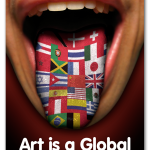
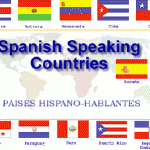
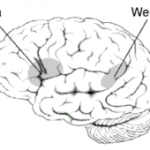
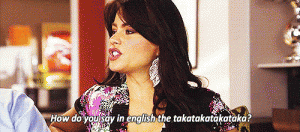
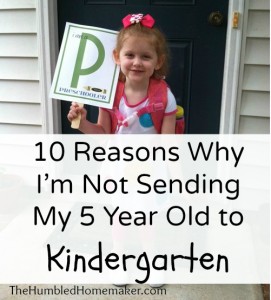
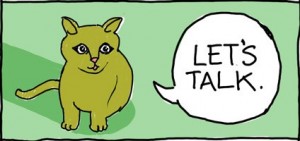
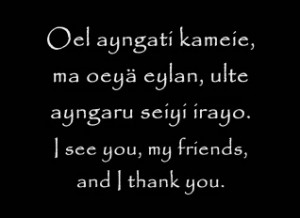
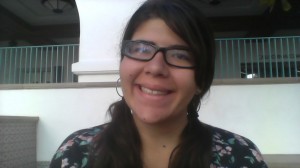






 D5 Creation
D5 Creation